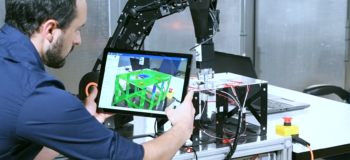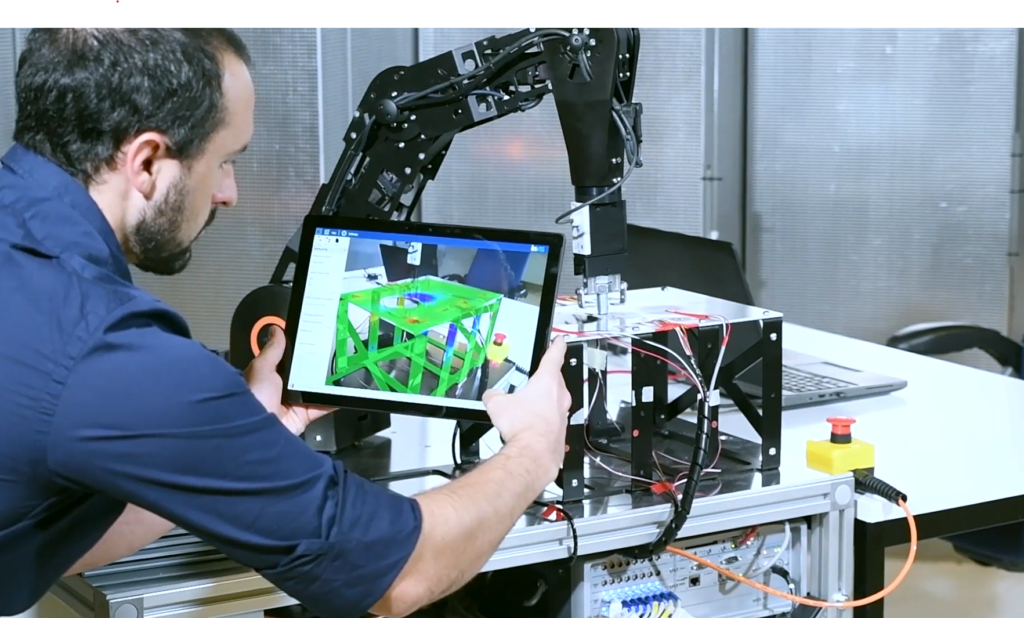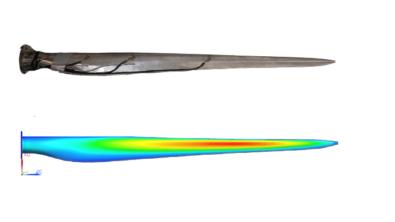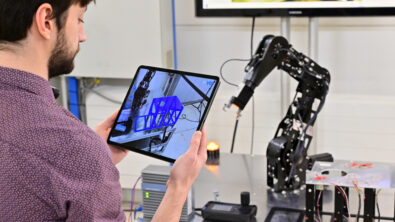Executable Digital Twin (xDT) – Part 2

The future of engineering with Smart Virtual Sensors
My journey through the secrets of xDT (Executable Digital Twin) continues with a new stunning chapter. After my initial interview with Dr. Herman Van der Auweraer and Dr. Katrien Wyckaert to unveil the roots of xDT, I recently met with a colleague deeply involved in the topic – Dr. Tommaso Tamarozzi. Tommaso is leading a research team within the Simcenter group. His team is composed of application experts, software developers, researchers and their primary role is to research and ‘robustify’ advanced numerical strategies. The group is active in many research fields such as flexible multibody, drivetrain simulation, state observers and of course xDT. Their mission is to incubate new products and propose new technologies and applications to the product management team. One of the new technologies that Tommaso is working on is smart virtual sensors.

What I found out is that a smart virtual sensor is a type of executable digital twin. It combines a few different technologies that only recently became mature enough to be deployed and allows you to create models that are basically self-updating… you have to see it to believe it, but these models update themselves while you are using them. What makes them more special is that they are connected directly to a physical asset, measuring real sensors and using the data – often in real time – to predict quantities that were previously not measurable. I like to refer to this as “measure the unmeasurable”. It really has to be seen to be believed, thankfully Leoluca Scurria put together a great video showcasing this technology.
The augmented reality part that you see at the end is computed from a reduced FE model running in real-time on an edge device and streaming result to a pad for the AR visualization….. true engineering value and not just pretty colors: all of this has been heavily validated for accuracy.
The Interview
The application use cases for this technology are still being explored, but I now have a huge list of people I want to interview next, one is related to wind turbines, another is related to satellite testing.
Up Next
There is a new product launching in May and I’ve already got my next interview scheduled with the creator, Dr. Bruno Lecointre. Bruno is a product line manager and has been working on reduced order modelling technologies. He has agreed to give me a short intro into the technology. He also has a session during Realize Live, so there is another reason to register and check it out. 😊

Our experts
Dr. Tommaso Tamarozzi is based in Leuven, Belgium, currently serves as Senior Research Engineering Manager within the Simulation 3D RTD group of the Simulation & Test Solutions segment. Tommaso started working with the company in 2009 as a master student and then officially entered Siemens in 2016. He holds a BEng and MSc from the University of Ferrara – Italy and a Ph.D. from the KU Leuven – Belgium. He also spent several periods studying and researching abroad; the University of Sydney, TU Delft and the University of Stuttgart.
Filippo Capurso is based in Leuven, Belgium, currently working at KU Leuven and collaborating as a Mechatronics Engineer with the Simulation 3D RTD group of the Simulation & Test Solutions segment. He graduated in 2019 from Queensland University of Technology – Australia, with an Honours B. Eng in Mechatronics and a B. IT in Computer Science, while also doing part of his studies at KAIST – South Korea. He recently moved from Australia in 2020 and has since been working closely with Siemens as part of the engineering research team lead by Tommaso Tamarozzi.
In case you missed it …
- Executable Digital Twin (xDT) – Part 1
- Executable Digital Twin (xDT) – Part 3
- Executable Digital Twin (xDT) – Part 4
- Executable Digital Twin (xDT) – Part 5
- Executable Digital Twin (xDT) – Part 6



